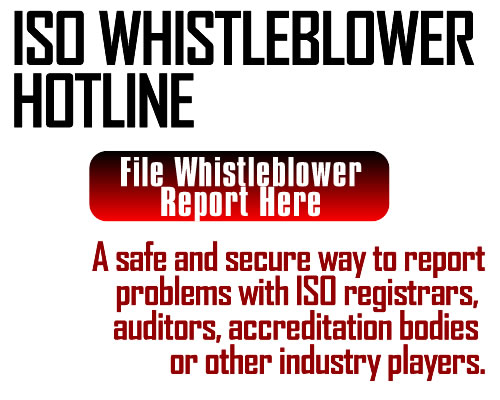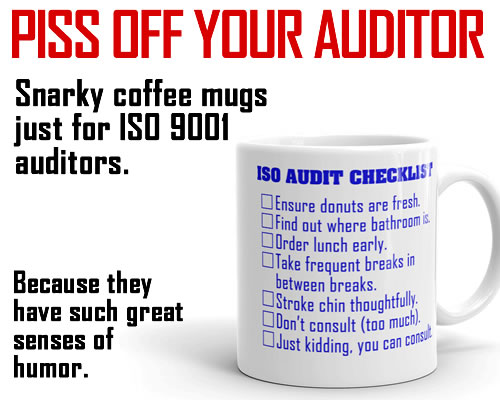Minneapolis MN – AS9100 training organization Plexus International is reportedly training the next generation of AS9100 auditors to allow clients to complete their own Process Effectiveness Assessment Review (PEAR) forms.
The PEAR form was introduced with AS9101 Rev D, the auditing checklist and rules to be followed by AS9100 auditors working for third party certification bodies (“registrars”.) The purpose of the PEAR is to document the auditor’s determination of the effectiveness of each process within an AS9100 client company. The form includes spaces for defining the process, as well as including an final assessment on product effectiveness and the rationale for that decision. AS9101 and accreditation rules require that these forms be completed by the certification body auditor, not the client.
Oxebridge has reported that over the past six months, numerous auditors working for a number of registrars have required clients to complete, or “assist in completing”, the PEAR forms. So prevalent has the problem become, that Oxebridge has now developed a special “Internal PEAR” form for clients to have ready before their next AS9100 audit. Such a form is not required by any clause within the AS9100 Rev C. standard.
(For a free copy of the Internal PEAR form, contact Oxebridge.)
Oxebridge may have discovered the root of the problem. In two separate reports received by Oxebridge, Plexus trainer “Spark” Taylor firmly asserted that auditors had the right to offload completion of the PEAR onto the clients. The training was given as part of Plexus’ Aerospace Auditor Transition Training (AATT) course, designed to transition existing registrar auditors to the new AS9100 Rev C standard. The reports represented two separate classes presented by Ms. Taylor.
That training course is sanctioned by the International Aerospace Quality Group (IAQG), which is responsible for the AS9100 series of standards, and which manages certification activities, including the authorization of auditor training courses.
According to a post on LinkedIn, prompted by Oxebridge’s concerns over the practice, one attendee wrote:
The Plexus instructor told us that she requires the client to complete the PEAR’s. When challenged with this, she told us that the client is required to comply with AS9101, and they are best suited (and it is to their benefit) to complete the PEARS. She went on to say that if they did not complete the PEAR, she wouldn’t do the audit. Rational was that auditors dont have time to do all this stuff. They barely have time to conduct the audit in the time given.
Another Oxebridge client, who attended a separate event, wrote to Oxebridge privately:
Yes. Agreed. That is EXACTLY what she was saying in the 5 day course that I attended.
A representative of the Americas Aerospace Quality Group (AAQG) commented that, “The instructor was fundamentally mistaken” and urged attendees to report the activity to the IAQG’s training feedback response team at feedback@iaqgtraining.com.
The AAQG rep went on to clarify that, “While AS9101D impacts the registrants, indirectly, the applicability of that standard is targeted to the CB and their auditors.“
Oxebridge maintains that the process identification information required by the PEAR should already be contained in a company’s AS9100 Quality Manual and documentation, and completion of the PEAR would be part of a normal document review or planning stage, performed by the auditor or CB staff.
Reports have also been received by Oxebridge that some registrars are requiring clients to complete their own Objective Evidence Reports (OER), a more serious allegation because the OER acts as the evidence of an AS9100 audit’s final result, and must be completed by the auditor. Oxebridge has not confirmed this allegation, however.
US-based AS9100 accreditation body ANAB is looking into the matter. Certification bodies found having clients complete PEARs or OERs may be at risk of having their accreditation suspended or withdrawn, if it is found to be a violation of accreditation rules. Because PEARs are signed only by the auditor, it may be impossible for ANAB to discover evidence.
Oxebridge contacted Plexus a week prior to press time, offering them an opportunity to provide clarification or feedback; they did not respond. If a response is forthcoming, Oxebridge will duly report on it.
Oxebridge does not provide any service which competes with those offered by Plexus.





